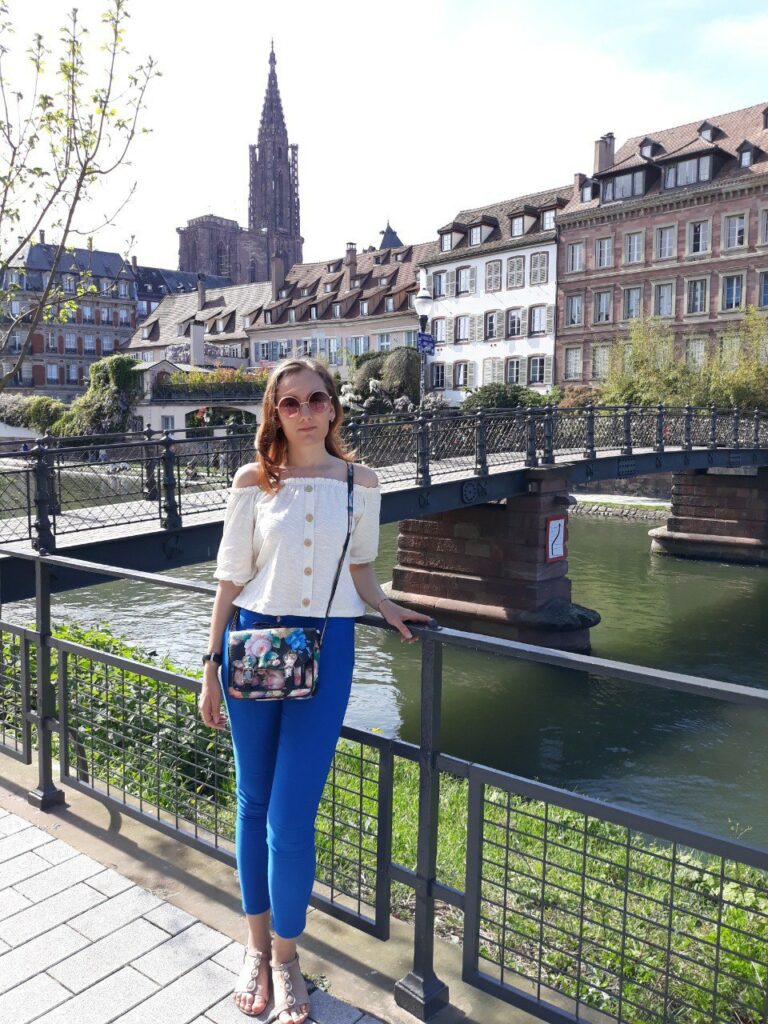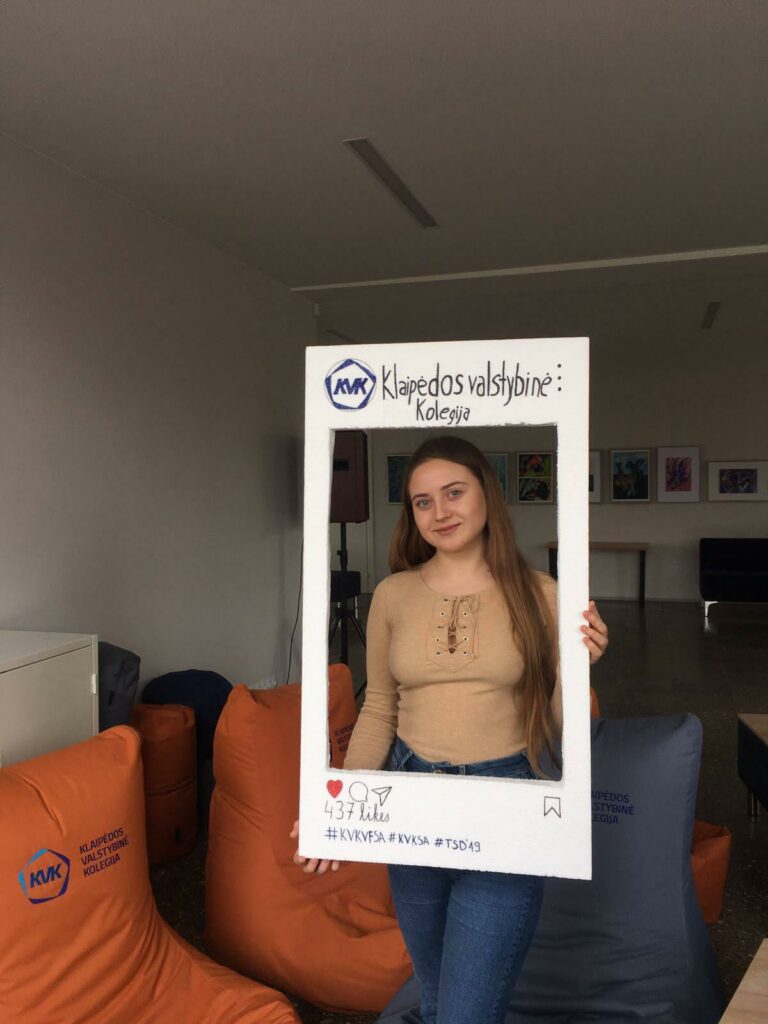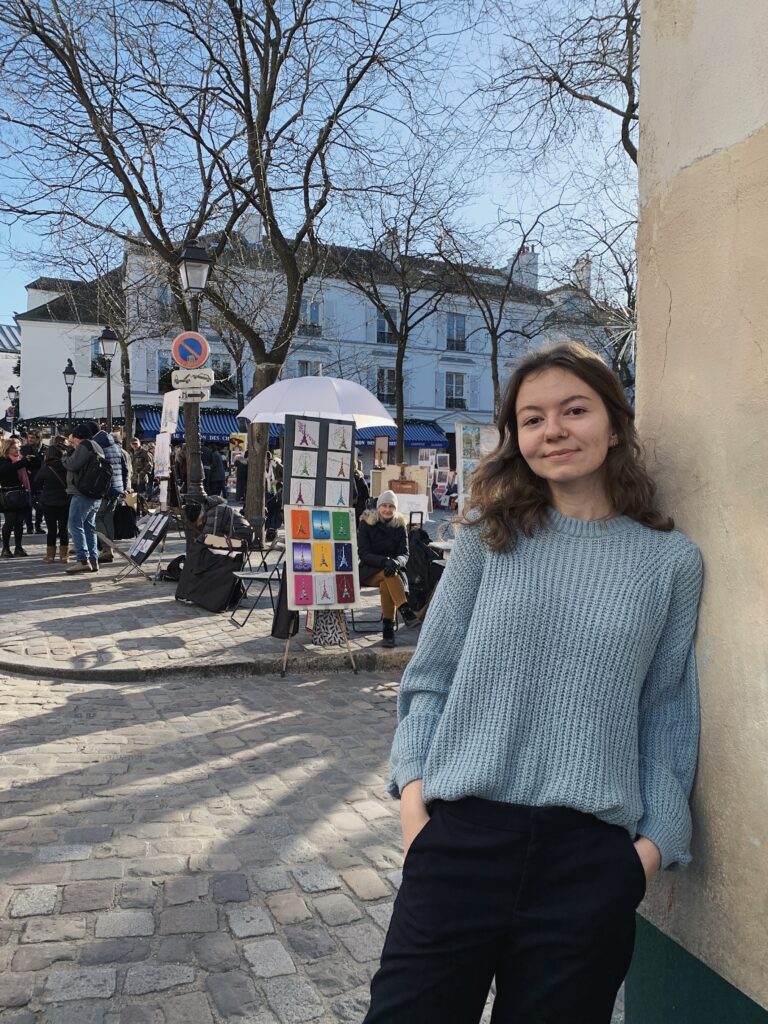
Erasmus+ programme: real stories from 3 Ukrainian students
As a university student, it is a unique opportunity to travel and to study in another country, where it is possible to meet new people, learn more about the culture, and explore what it is like to study in Europe. That is what the Erasmus+ programme is all about! It is a European Union student exchange programme, which was established in 1987 to support education, training, youth, and sport in Europe. In this article, 3 Ukrainians will talk about their student exchange experience by sharing their favourite things about the country they lived in during the semester and the university they studied at, whether they faced any challenges and the benefits from the programme career/education/life-wise.

Meet Tetiana Katsevych, a Young European Ambassador from Ukraine, who spent the Erasmus+ semester during her master’s 1st year in France and studied at the Institute of Political Studies, Strasbourg University from January to June 2019. For Tetiana, there were numerous positive things about France. “Firstly, France is all about diversity and multiculturalism in all possible ways, I would say, even more, than other EU countries: the variety of languages spoken on the streets and meeting people all over the world made me be immersed in a truly diverse society, which is highly respected and understanding,” she pointed out. Secondly, as an Art History geek, Tetiana absolutely loved France’s beauty, the historical heritage, authentic festivals, museums, picturesque landscapes, and numerous breathtaking castles. “And last, but not least reason I would like to mention is about social and students benefits, even for foreigners. Needless to say, I was amazed by free medical insurance, which covers almost all the expenses on doctors’ appointments and medications, reimbursement of accommodation rent, cheap prices for meals and fares in urban transport, and free entrance to every museum and historical place”, Tetiana mentioned.
There were a few things that she liked about studying at the Institute of Political Studies, Strasbourg University. “The possibility to choose the courses completely based on your own preferences, no obligatory classes, the absence of hierarchy between lecturers and students, friendly atmosphere and meaningful team-working assignments”, Tetiana responded.
Luckily, during her exchange semester in France, Tetiana did not encounter any difficulties, apart from an issue related to the validation of a visa in the French Office of Immigration. “That’s was quite tough in terms of bureaucracy and paperwork, as I needed to prepare lots of documents and send them both by post and bring in person. In the end, it took me over 2 months to register my visa”, she noted.
“I can’t overestimate the significance of this semester abroad! I grew up both personally and professionally, practiced the French language not only for study purposes but also while tackling everyday problems”, told Tetiana. This experience of a student exchange semester allowed her to define the professional and educational goals in life, while also outlining what career path Tetiana is passionate about. “For the time being, I pursue a Master’s degree with Erasmus Mundus scholarship at the same university, what I am totally sure would have been impossible, if I had not done the Erasmus+ exchange”, she revealed.
Now, meet Mariia Kovalchuk, who went on an Erasmus+ semester during her 3rd bachelor year of university to France and studied at ESDES School of Business and Management for a spring semester in 2020. Mariia had zero expectations when she chose France as a country for her exchange semester. “I didn’t speak French, wasn’t obsessed with fashion and didn’t go there for croissants”, she continued. When sharing her favorite thing about France, Mariia said: “What I got to love the most about the country is the beauty of the architecture, all the kinds of French pastries, and the slower pace of life”.
During the exchange semester, Mariia was studying at ESDES School of Business and Management in Lyon. “My favorite thing about ESDES was that I got a chance to study many very specific subjects in-depth, the ones that I wouldn’t be able to take back at my home university”, she noted. Mariia took 10 classes that featured everything – international finance, trade, marketing, etc.
One of the biggest challenges for Mariia was not knowing the French language. “I didn’t think that would be an issue but when I came to the country, I faced a lot of disrespectful treatment from the people there because I spoke English”, she replied. For her, taking a French language class at the university was helpful, while additionally learning the basic, daily-used phrases. “Also, Google translate has become my best friend during the semester and saved my life when talking to the dorm reception or the staff at the cafeteria”, Mariia added.
“This was a great experience despite the challenges with the language that I had, how expensive France was, and the fact that my exchange semester got interrupted by the pandemic”, she summed up. Moreover, the classes that Mariia took at ESDES allowed her to explore her career aspirations and to provide an understanding for the further development of her career path. “Living in France almost for a semester put me outside of my comfort zone and contributed to my self-development, helped me grow my network, make new friends, and was just so much fun”, she claimed.

Lastly, meet Nadiia Symonenko, a Young European Ambassador from Ukraine that went on an Erasmus+ semester during her 3rd bachelor year of university to Lithuania and studied at Klaipeda State University of Applied Sciences from February to June 2020. When talking about Lithuania, Nadiia mentioned that it is a small Baltic country that is not so far away from Ukraine. That is why to her, Lithuanian culture and traditions seemed similar to Ukrainian ones. “Altogether, I felt very much at home there, most of all I loved meeting local people and talk to them about their lives, trying to find something in common, and, at the same time, highlighting the differences”, she said. Nadiia pointed out that getting to know some part of amazing Lithuanian culture was an honor to her. “Even after a year after finishing my Erasmus I still sometimes long for visiting Lithuania again, as it now feels like a second home to me”, Nadiia commented.
While studying a semester at Klaipeda State University of Applied Sciences, she said that her favorite thing about the university was that everyone truly and deeply cared about Nadiia’s wellbeing, her comfort, and the quality of her studies. “Whenever I needed something or had a question about anything, someone was there for me to help. And not only the international department staff, but also my teachers, and other students. Everyone was so nice to me, I never felt left out or that my problems didn’t matter”, she explained. Another thing that was great about the university was their concern about all the Erasmus students’ leisure time. “They constantly organized different interesting international events for us, took us kayaking, barbequing, and to many different excursions. When the Covid hit, they almost immediately switched to online events and meetings, so we never felt alone”, told Nadiia.
Remembering her exchange semester experience, Nadiia mentioned that the pandemic and the quarantine that followed in March as her main challenges. “My university gave us two options on how to spend the rest of our program – either we go home and finish studying online, or we stay in dorm quarantining with the rest of students. I decided to stay, and it was both awesome and sad. Awesome as I got to concentrate on my online studies, I tried not to waste much time, and dedicate myself to self-development. I read books, worked on my English, and my marks. I finished the semester with a perfect score. The sad part with this decision was that I couldn’t spend my Erasmus as usually people do. Many people left home, and even with those who stayed, we couldn’t go out much. All of us often felt lonely, and worn out because of the constant use of computers and phones”, she clarified. However, after some of the restrictions were lifted, the last two months were better for Nadiia, as she had a chance to swim in the Baltic Sea, visit city events, and the university took the students kayaking and barbequing in June. “So, everything worked out fine”, she concluded.
“Overall, Erasmus really became a watershed moment in my life, I even started mentally divide my life into “before and after Erasmus” periods. These 5 months gave me a perfect opportunity to step up my English language level, I’ve met amazing people from all around the world, got to live on my own abroad, and spend Erasmus scholarship on things I’d always dreamed about. I tasted what it’s like to live in the EU and saw for myself the amazing quality of studying in the EU’s university”, Nadiia stated.
Recalling these 3 stories about a student exchange semester, it can be noticed that going by an Erasmus+ programme to study in another country is indeed a great opportunity that can be both exciting and beneficial. Spending a semester in an EU country brings more knowledge about the country’s history, culture, and architecture, but also generates new meetings and fun memories. Studying at an EU university provides a broader choice of subjects to study in-depth and care for the wellbeing of the students. Even when facing challenges like the lack of language knowledge, issues with documents, or the pandemic – it is still possible to have an unforgettable and significant semester with an Erasmus+ programme that is beneficial for future career goals, personal growth, and educational ambitions.
Find our more about Erasmus+ opportunities here.
LATEST

How you can help the planet every day

Building Europe: Poland’s experience of joining the European Union and lessons for Ukraine

World Health Day 2024: My Health, My Right

EUREKA MEETS EUROPE – opportunities to develop and study. My experience

Can you wear pink in the workplace?
More campaign pages:
Interested in the latest news and opportunities?
This website is managed by the EU-funded Regional Communication Programme for the Eastern Neighbourhood ('EU NEIGHBOURS east’), which complements and supports the communication of the Delegations of the European Union in the Eastern partner countries, and works under the guidance of the European Commission’s Directorate-General for Neighbourhood Policy and Enlargement Negotiations, and the European External Action Service. EU NEIGHBOURS east is implemented by a GOPA PACE-led consortium. It is part of the larger Neighbourhood Communication Programme (2020-2024) for the EU's Eastern and Southern Neighbourhood, which also includes 'EU NEIGHBOURS south’ project that runs the EU Neighbours portal.

The information on this site is subject to a Disclaimer and Protection of personal data. © European Union,
